David Herbert, nicknamed The Egg Man, tells you all you need to know about showing eggs

You’ll get your entries submitted to the show secretary after giving careful consideration to your likely choices. Then you’ll spend the run-up making sure that everything is just right and consistent in the effort to make sure your entries are up to scratch. The day before will be one of final decisions and organisation: ensuring you’ve got any passes, tickets, directions and other relevant paperwork, all before a restless sleep and an early awakening to get loaded and moving. Arrival at the showground usually means a dash to your section where you unpack, apply some finishing touches to your entries and get ready for judging. If you’ve been to an agricultural show you’ll have seen judges of various disciplines making their assessments of the cows, sheep and birds on display; getting hands-on to have a feel for muscular structure or conformity and looking square at the exhibit to get a sense of proportion and line. Then looking at the back end to make sure all is clean and in order and checking that all points meet the necessary standards for the breed or type.
But just how do you go about judging or selecting eggs? What is it that you’re looking for when presenting your egg exhibits in the poultry sections? Whether it be large fowl, bantam, waterfowl or even turkey it’s much the same principle.
Let’s start with the shape. This should be, well, egg shaped. An egg that is too round or thin and narrow is no good. Particularly for chickens, we want to see a broader base and a narrower top. Next we look at the shell and how it was formed. There are any number of undesirable features we hope to avoid. The shell should be smooth, with no wrinkles, pimples, cracks or holes. There should be no excess calcium deposits on the surface and no visible areas of thin or translucent shell.
Esta historia es de la edición July 2018 de Your Chickens.
Comience su prueba gratuita de Magzter GOLD de 7 días para acceder a miles de historias premium seleccionadas y a más de 9,000 revistas y periódicos.
Ya eres suscriptor ? Conectar
Esta historia es de la edición July 2018 de Your Chickens.
Comience su prueba gratuita de Magzter GOLD de 7 días para acceder a miles de historias premium seleccionadas y a más de 9,000 revistas y periódicos.
Ya eres suscriptor? Conectar
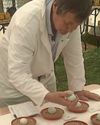
The Egg Man's got it cracked
David Herbert, nicknamed The Egg Man, tells you all you need to know about showing eggs
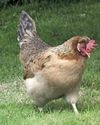
Slasher Battles On
Slasher the ancient Araucana is looking good, but looks can be deceptive
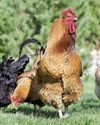
Flock Dynamics: A Guide To Social Hierarchy
Julie Moore takes a look at how the pecking order is established

In Harmony With Nature
Susie Kearley talks to Anya Lautenbach whose home shows her love of gardening and chickens
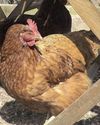
Then There Were None...
The Mystery of the Phantom Egg Eater

Off To Market
The French love buying chickens at local markets.
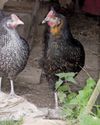
Early Learning
How chickens adapt, despite lessons from early llife
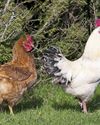
Poultry Providers
Kim Stoddart explains the benefits of buying in stock from one of the bigger, national suppliers…
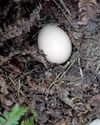
Drop In Egg Production
Drop In Egg Production
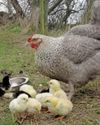
Ideal Broody Time
Ideal Broody Time